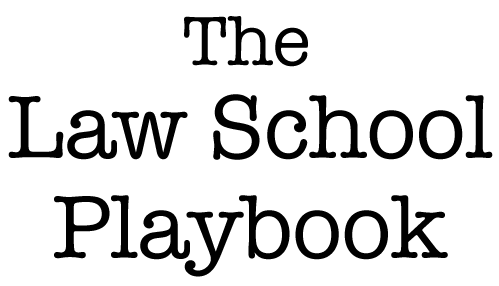Dear Student,
Welcome to The Law School Playbook! I’m Halle Hara, a professor of academic success and personal skills coach to law students and attorneys. I’m glad you’re here! My goal is not only to change if you read but also how you read for law school. For instance, you may be reading for class because you don’t want to be embarrassed if you are called on or want to cross the assignment off your always-growing “to do” list. When reading experts instruct you to read with a clear purpose, however, that’s not what they have in mind.
When reading experts instruct you to find your purpose, they are urging you to look for inspiration for learning. Law professor and author Ruth Ann McKinney explains that the most successful law students have an intrinsic, rather than extrinsic, purpose when reading. What does that mean? Ruth Ann McKinney provides some examples such as reading for professional growth, to improve legal reasoning abilities, to learn principles central to the practice of law, and to learn about how the legal discourse community operates. She also recognizes that the purpose may be more narrowly defined, including reading to get a picture of what happened in the case or to understand how the case fits into the bigger picture of the course.
What’s the takeaway from the idealistic-sounding directive that you should read with a clear purpose? At a minimum, you need to approach your reading remembering that you want to be a lawyer. Reading cases just to get through them isn’t sufficient to inspire critical thinking. The recursive reading process that follows from a clear intrinsic purpose means you won’t necessarily read a case from beginning to end like you would a mystery novel to avoid spoiling the ending. Instead, reading with a purpose prompts you to develop a hypothesis that you revise and amend as you move through the text. This means that you may revisit an earlier section in a case when your later reading causes you to realize that your hypothesis was incorrect or needs to be modified.
At bottom, reading with a meaningful purpose prompts you to raise questions as you read and to think critically about the text. Whatever time you spend on your reading assignments, reading with a purpose will ensure that it is time well spent.
If would you like to read this episode, get suggestions for further reading, or to request individual coaching with me, please visit my website at www.lawschoolplaybook.com.
As always, do your best, and I’ll be rooting for you!
References and Further Reading
Leah M. Christensen, Legal Reading and Success in Law School: An Empirical Study, 30 Seattle U. L. Rev. 603 (2007).
Leah M. Christensen, The Paradox of Legal Expertise: A Study of Experts and Novices Reading the Law, 2008 B.Y.U. Educ. & L.J. 53 (2008).
E. Scott Fruehwald, Think Like a Lawyer: Legal Reasoning for Law Students and Business Professionals 11–15 (2013).
Jane Bloom Grisé, Critical Reading for Success in Law School and Beyond 7–11 (2017).
Ruth Ann McKinney, Reading Like a Lawyer: Time-Saving Strategies for Reading Law Like an Expert 51–55, 97–101 (2d ed. 2012).
